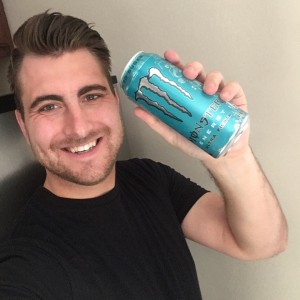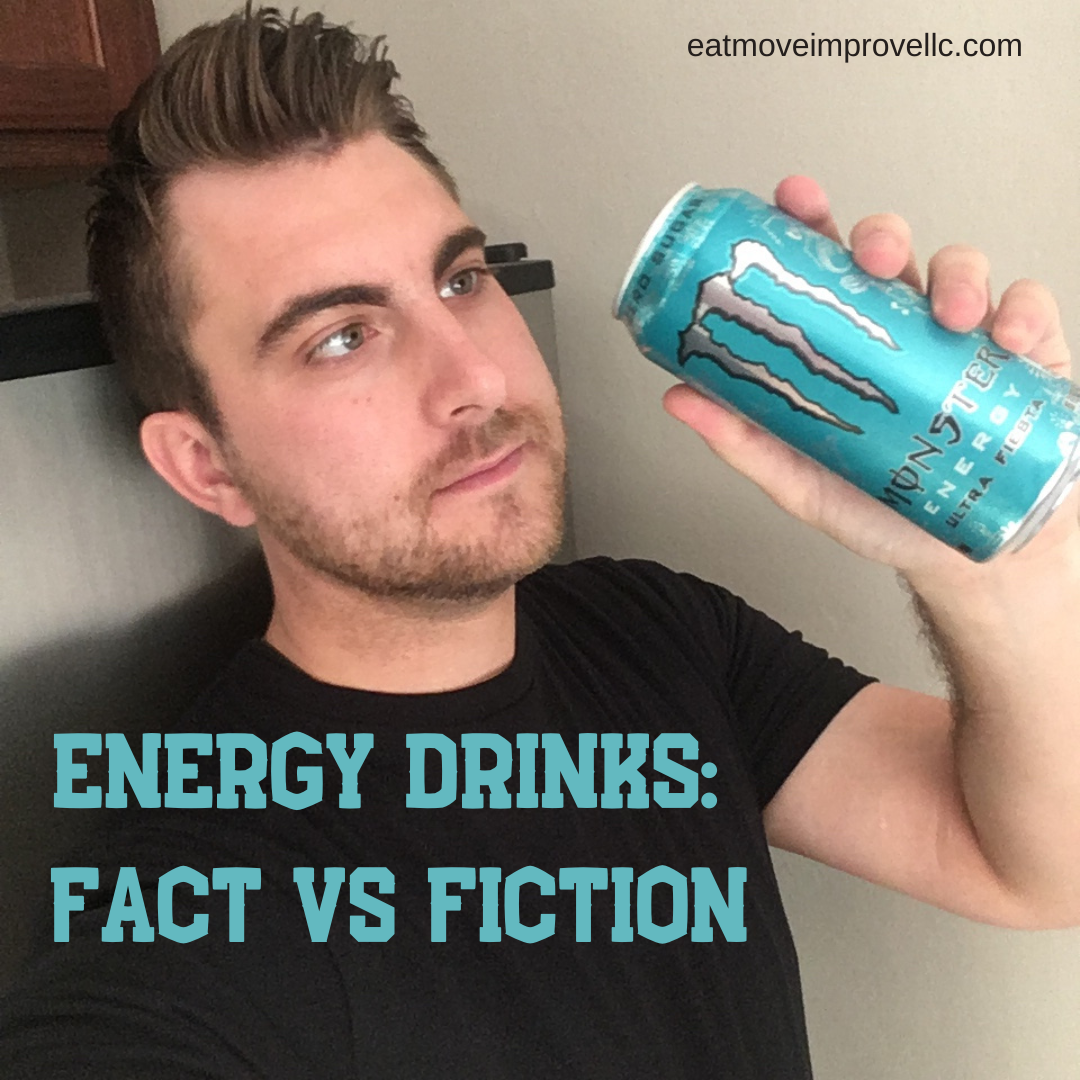Remembering the Past
If I were to ask you about your first exposure to an energy drink, you could probably describe it in vivid detail. You might even remember the first time you drank an energy drink. I can remember my very first energy drink like it was yesterday. It was during the summer between my freshman and sophomore year in high school. At that time, my friends and I would hang out all day and night. We explored our neighborhood and surrounding areas from dawn until dusk. We would play sports, card games, and video games at all hours during the day. I specifically remember one evening. It was late. Already dark in the middle of the summer. We decided to grab late night snacks at the nearby McDonald’s and convenient store. I remember we all bought the oversized Monster cans from the gas station. I had been exposed to the marketing and heard the claims. They spread messages not only of added energy to your day, but a sexy and exciting lifestyle. Sufficed to say, I was both anxious and excited to try this new form of beverage.
A Prominent Beverage Market
Energy drinks have come a long way since that time in the early 2000s. You could trace the modern-day energy drink market to 1997. Red Bull launched its original drink to the U.S. after becoming popular in its home country of Austria. Monster followed Red Bull in 2002. Rockstar, NOS, AMP, and Full Throttle launched behind these two pioneers in the years after . You can now find various versions of “Energy Drinks:” original, low calorie, organic, and even coffee. The Energy Drink market reportedly made $53 billion in 2018. The market has been forecasted to grow to $86 billion by 2026. That’s some serious green!
The Marketing behind the Success
Why are these drinks so popular? Intelligent marketing and claims have been highly effective to consumers. Consider the marketing messages the most popular energy drink brands share with consumers:
- “Red Bull will give you wings”
- “Unleash the Beast”
- “Live the ‘Rockstar’ Lifestyle”
- “Hard Working, Easy Drinking”
In addition to slogans, energy drink manufacturers include health claims on their packaging. Energy drink cans typically include names of certain nutrients on the packaging itself and in the nutrition facts label. Many of these products tout high amounts of caffeine, sugar, and certain vitamins that may improve critical thinking ability and athletic performance. Additionally, these manufacturers add certain herbs and supplements that may offer unique benefits:
- Guarana: An herb used to prevent tiredness and improve mental speed. It also is used to promote weight loss and increase sexual desire.
- Taurine: A supplement used to improve memory and endurance.
- Ginseng: An herb used to help reduce stress, strengthen muscles, and improve endurance.
- Synephrine (bitter orange): An herb used to promote weight loss.
- L-carnitine l-tartrate (LCLT): A supplement used to increase energy, memory, and speed. It also is used to break down fat.
- Yerba mate: An herb used to prevent tiredness and improve mood.
- Gingko: An herb used to increase focus and prevent tiredness.
- John’s Wort: An herb used to reduce stress and improve mood.
Understanding the Claims


As you can see, the appeal for these drinks can be considerably high. The combination of marketing slogans and package claims have been effective in growing this market to nearly $100 billion in less than 30 years. Here’s the catch: many of these claims are not regulated by a governing body nor proven by scientific studies. Marketing claims on packaging and in advertisements are not regulated by the FDA. Companies have the option to have their products tested and confirmed by 3rd party testers. These agencies test for purity, effectiveness, and transparency of supplements and other performance enhancing products. However, most companies opt out since it adds extra cost to their business units. More so, most consumers do not take a moment to see if these products have been tested.
At the same time, you can be assured that the Nutrition Facts Label will be true and transparent. Almost all food products are required by law to print a nutrition facts label on their packaging. This label is regulated and confirmed by the FDA. A nutrition facts label, including energy drinks, will tell you what kind and which nutrients are contained in the food. It is important to always take a look at the label.
What Research Suggests
So, what is the truth about these energy drinks? Do they really do what they promise to do? The answer: we’re not sure. Few studies have been performed with energy drinks. Most have looked at the negative effects of these drinks. Even so, it is difficult to study increased performance and energy. The results about the benefits have been cloudy at best. Here is what the science can tell us: the high amount of caffeine, sugar, and other ingredients may have negative effects in people. These side effects include:
- Headaches, stomachaches, or diarrhea.
- Chest pain.
- Anxious or nervous feelings.
- Dizzy or lack of focus.
- Difficulty sleeping.
- Weight gain.
- Increased risk for diabetes
- Dental issues.
My Personal Take


I am by no means opposed to energy drinks. In fact, I leisurely enjoy a can every so often. I enjoy them for their taste and refreshment. On hot days in the summer, I may grab an energy drink in place of a coffee. I have a difficult time swallowing down a hot coffee in the Summer heat. I always go for the “zero sugar” options. To me, an energy drink is a treat and puts a smile on my face. From a nutritionist’s point of view, I see these drinks quite similarly to soda pop products. The benefits in my eyes include taste, refreshment, enjoyment, and excitement. I have outlined the risks that can be associated with these drinks. Realistically, the risks associated don’t outweigh the perceived benefits. While these drinks don’t improve our lives nutritionally, they can uplift our day functionally. For those reasons, energy drinks can be considered an “every so often” option. Do your research. Understand the risks. But, if you like them, and can limit them, you can enjoy them!
Further reading: Energy Drink Consumption: Beneficial and Adverse Health Effects , NIH Position Statement




Leave A Comment
You must be logged in to post a comment.